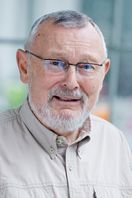The Prof. Joachim Lenz Foundation
Short portrait: Prof. Joachim Lenz

Prof. Lenz was born in Berlin in 1938 and studied civil engineering there from 1957 to 1965. From 1965 to 1980 he worked as a hydraulic engineer and supervised numerous projects in South America and Africa. In 1980 he became professor for urban water management at Oldenburg University of Applied Sciences, which he continued until his retirement in 2003. He has said the following regarding his involvement in the Foundation: “As someone who grew up during the Second World War and the years thereafter, the idea of a borderless Europe has always fascinated me. I witnessed the reconciliation process between France and Germany, which was a miracle of reconciliation between neighbours. In my view, youth exchanges played an eminent and important role in this. After Gorbachev’s paradigm shift opened Europe to the east, it became even more clear to me that, after retirement, I wanted to devote myself to youth exchanges in this part of the continent which had been closed off for so long. In 2003, something happened which I never would have even dared to think about: members and friends of the association, which the Institute for Pipeline Construction Oldenburg supports, handed me a foundation which had been founded for the exact purposes I had dreamed of for so long. They even gave the foundation my name without my prior knowledge. I was inspired to align my idea with the expectations of the founders and translate the entire concept into the new European reality; in other words, utilize the connection between academia and business to reinforce the connections between Germany and its Eastern European neighbours. I went through channels which the Institute had established in Central and Eastern Europe to publicise a one-year internship at a German company to young graduates, during which they would deepen and expand upon their specialist knowledge and skills. These young people must have completed their degree programme with satisfactory grades and mastered the German language to the extent that they can get by without an interpreter. I was certain that by doing this, we could reach out to those who would support overcoming any potential divides which still exist between our countries. Over the last few years, personal relationships have been fostered with many universities in neighbouring countries, which is where many of our interns have come from. For each and every one of them, we have sought out a specific internship that will suit both the young person, and the German company. It is only when both parties view this internship as a success that our vision can continue to survive on a long-term basis.”
This short portrait is available in our download section.
